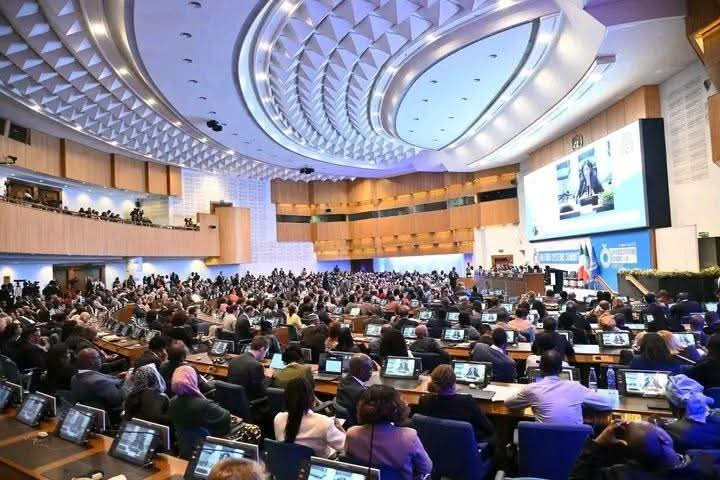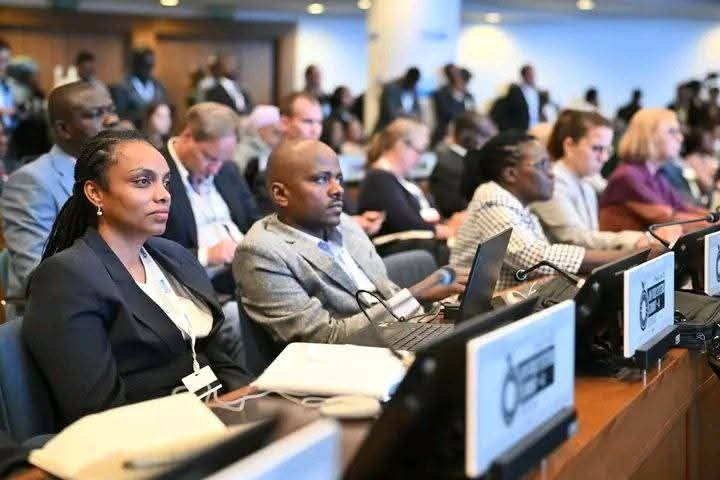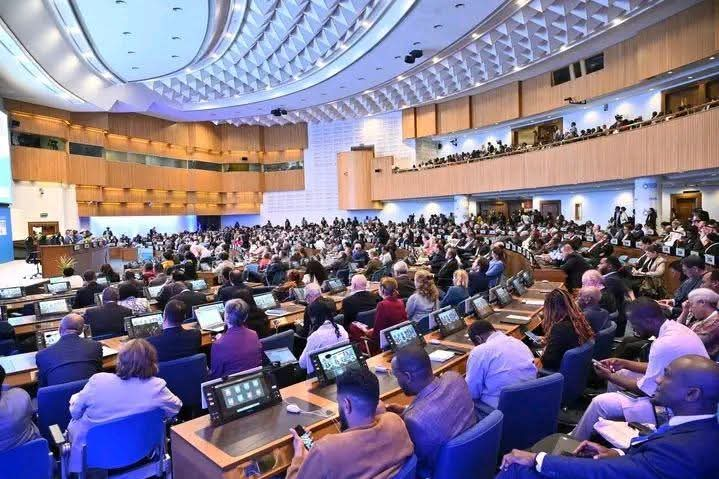Mekelle፡Addis Abab,Telaviv, Nairobi, Pretoria, London, (Tigray Herald).
UN Deputy Chief Calls for Bold Action to Transform Food Systems at Global Summit in Addis Ababa
The United Nations Deputy Secretary-General, Amina Mohammed, has urged world leaders to seize the opportunity to transform global food systems, describing them as a “powerful lever” to achieve the Sustainable Development Goals (SDGs).
Speaking at the conclusion of the UN Food Systems Summit +4 Stocktaking Moment (UNFSS+4) in Addis Ababa, co-hosted by Ethiopia and Italy, Mohammed praised the progress made but warned that urgent and coordinated action is still required.

“With only five years left to meet the 2030 targets, hunger and malnutrition persist,” she said. “Climate shocks, conflict, debt, and inequality are widening the cracks in our systems. But food systems are not just part of the problem they are one of the greatest solutions for people, planet, peace, and prosperity.”
The summit, held from 27 to 30 July, brought together more than 3,000 participants from governments, civil society, Indigenous Peoples, youth organizations, and the private sector. The gathering assessed progress since the inaugural 2021 Food Systems Summit and sought to reinforce global commitments.

Mohammed noted that over 130 countries have now developed national pathways for food systems transformation. “Food and agriculture are now embedded in the climate plans of 168 countries,” she said. “Over 170 nations have implemented school meal programmes. These are more than just meals they are investments in our children, our farmers, and our collective future.”
The summit also marked the launch of the 2025 State of Food Security and Nutrition in the World (SOFI) report. Produced jointly by FAO, IFAD, UNICEF, WFP, and WHO, the report reveals a modest global decline in hunger, yet warns of a troubling surge in food insecurity in Africa and Western Asia.
Persistent food price inflation, the report found, has eroded access to healthy diets for low-income populations. Women, children, and rural communities remain the most affected, with over 37 million children under five expected to suffer from acute malnutrition this year nearly 10 million of them from severe wasting.
Mohammed described these figures as “a stark reminder of the fragility of our progress” and stressed the need for long-term, inclusive, and locally driven solutions. “Communities are trapped in relentless cycles of hardship,” she said. “But courage is on display at all moments.”

She praised countries integrating resilience into national strategies and combining traditional knowledge with science to rebuild food systems.
The Deputy Secretary-General called on development banks and donors to align their investments with national food transformation plans and prioritise marginalized groups, including Indigenous Peoples, women, and youth.
“As we conclude this stocktake, we must acknowledge that we met in the face of challenges that test our moral values and threaten the future sustainability of our planet,” she said. “Let’s continue to lead the way together.”
The summit closed with a call for renewed multilateralism and global solidarity in building resilient, inclusive, and sustainable food systems to meet the 2030 Agenda for Sustainable Development.
Source POA English.



